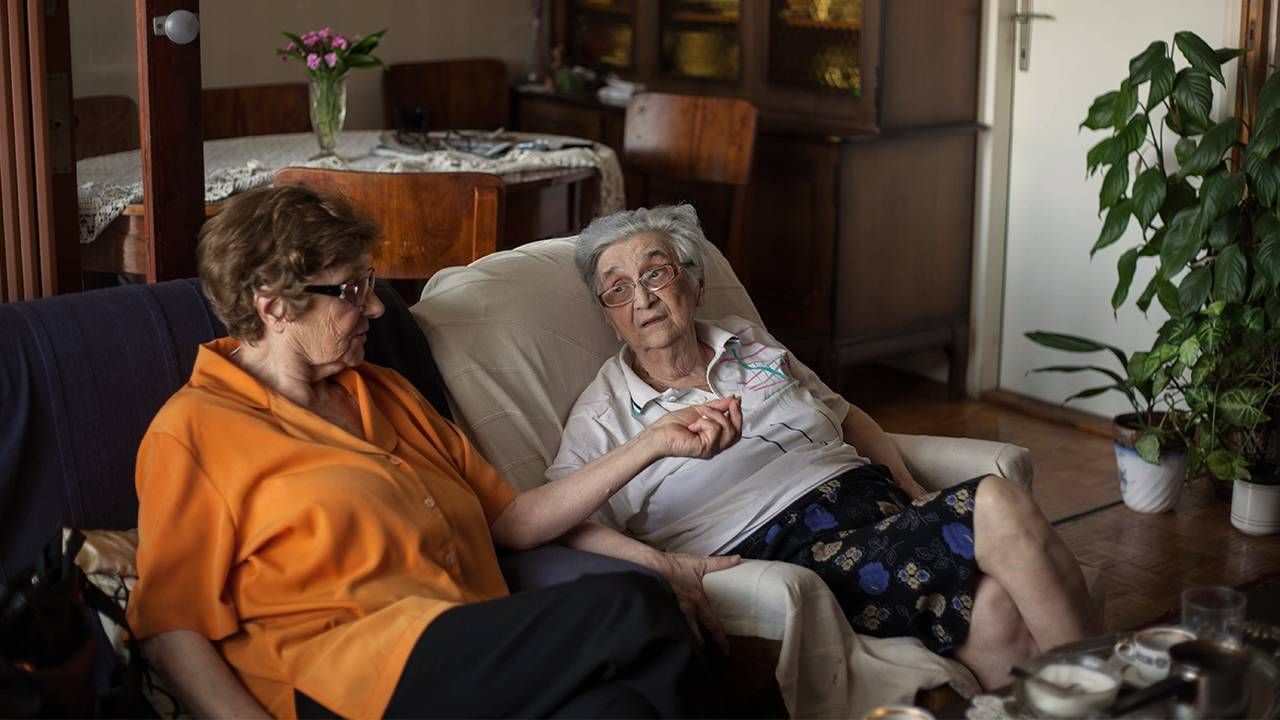Sibling Rivalry Isn't Just for Kids
Sibling relationships may be frayed well into adulthood — some can be repaired, and some can't be
Like many people, my husband and I are hooked on the show "Succession," now streaming on HBO Max. The main characters are members of the ultra-wealthy, highly dysfunctional Roy family. The family patriarch, Logan, has pitted his four children against each other throughout their lives.

The show dispels a common belief that as kids grow up, sibling rivalries dissipate. Now adults, siblings Kendall, Roman, Siobhan and Connor can't help but treat every situation they are in as a competition, from who should control the family company to playing a "friendly" game of Monopoly.
The study found that more than 50% of adult siblings still argue and feel competitive with one another.
"Linda Wagner" [her name has been changed at her request] of Long Island, New York can relate to the sibling tension depicted by the fictional Roy family.
Of her younger brother, to whom she was once close, Wagner, 54, says, "Our lives are very different. If he weren't my brother, we wouldn't know each other. We have nothing in common."
When their parents were alive, there was a rivalry between them that Wagner dealt with as best she could. Then their father passed away, followed by their mother, bringing to light financial concerns about the estate.
"We hardly speak now," says Wagner, "He is my only living relative aside from some cousins, so it makes me sad."
How Sibling Rivalry Starts
A 2021 study conducted by One Poll for NOW polled 2,000 adults about their sibling dynamic. The study found that more than 50% of adult siblings still argue and feel competitive with one another.
Sibling rivalry is typical; the competition usually begins when the second child is born. The first child now has to share their parents' attention which can lead to resentment. In contrast, younger siblings may feel they are always trying to catch up to an older sibling and their accomplishments; for example, this may occur when teachers compare them in school.
Megan Harrison, a marriage and family therapist and owner of Couples Candy, says, "If one child is more gifted or talented than the other, their sibling may experience feelings of jealousy or inadequacy over the other's skills, knowledge or talents."
The Role of Parents in Sibling Relationships
Favoritism (real or imagined) by parents of one child over another can play a big part in sibling rivalries. "If a parent praises one child excessively, that child may develop huge expectations for themselves and feel threatened by any accomplishments that other siblings achieve," says Harrison.
And even when parents truly love all their children equally and try to treat them equally, the children still may feel there is an underlying unfairness. For example, a parent may let an older child have a later bedtime or be more lenient with a younger child, leading to resentment between the siblings.
There also may be a pressure, direct or implied, for siblings to be close to one another. Siblings may grow weary of trying not to upset their parents, especially when they don't enjoy each other's company.
"My mother would say 'You only have each other,' which made me feel guilty," says Wagner, "I have two children myself and I would be sad if they weren't close."
Sibling Rivalry That Continues
According to family therapy experts, as siblings grow older, their communication skills and levels of empathy often increase, which can help fortify their current relationships. However, in some instances, siblings find themselves falling back into familiar patterns of negative interaction with one another. When this happens, sibling rivalries may re-emerge.
"If you feel like your sibling is always putting you down, is manipulative, or makes you feel bad about yourself, then it's probably time to end things."
Rather than growing closer with age, some siblings find the gap between them widening. Just because you are related and grew up together does not mean you will get along or have shared interests or values. Topics such as politics, spouses and parental care can cause resentment between adult siblings.
The 2021 study also found that 20% of adult siblings still argue about which child is their parents' favorite. Other sources of rivalry include who takes nicer vacations, who is the better cook, who has fancier cars and who has better parenting skills.
Ways to Improve Sibling Relationships
Interestingly, 25% of the respondents in the study felt that competition with a sibling was healthy, and two out of ten felt this rivalry helped them achieve more in life because it fueled them to work harder.
If you want to improve your relationship with your siblings, you can take steps. The first is simply talking to them as adults. Discuss what you believe is causing the rivalry. Listen to their feelings without judgment and avoid arguing. Express your views honestly and try to come to a place of mutual understanding.
In some cases, there may be no way to resolve sibling differences. A third of those polled in the study admitted that they stopped talking to a sibling for a period of time due to a disagreement. While family is important, if the relationship between siblings is unhealthy, sometimes it is best to sever ties or take a time out.
"If [the sibling] is always critical and negative, it's going to be very hard to have a healthy relationship with them," Harrison says. "If you feel like your sibling is always putting you down, is manipulative or makes you feel bad about yourself, then it's probably time to end things."
Sometimes a sibling rivalry is less about your sibling and more about the feelings they trigger within you. According to Harrison, "sibling rivalry can be about many things including low self-esteem, a troubled relationship with parents or general unhappiness."
If you feel competitive with a sibling, try to figure out what is driving the feeling. It may be that if you make a change to your own life or speak to a mental health professional, you will feel better about yourself and your relationship with your sibling will improve.
While shared memories of childhood can be a connector, it is important for adult siblings to treat one another as adults. The more you know about a sibling's current life, the more empathy you may have for each other.
Also, as adults, you can make your own choices about the relationship. "You can choose to be friendly or not, cordial or indifferent, whatever is best for your situation," Harrison says.
As for Wagner, she is not sure there is a way forward. "I have kept things cordial, tried not to say anything about my frustration with him," she says. "But he isn't going to change. So I have to change how I choose to interact with him. At the same time, I feel sad to break ties with him. I need to do what is right for me."
She added, "I can't let a toxic relationship with my brother drain my energy from being able to be there for the people I love, including myself."
Editor’s note: This article was updated on April 25, 2023, to clarify the observations offered by family therapy professionals.


